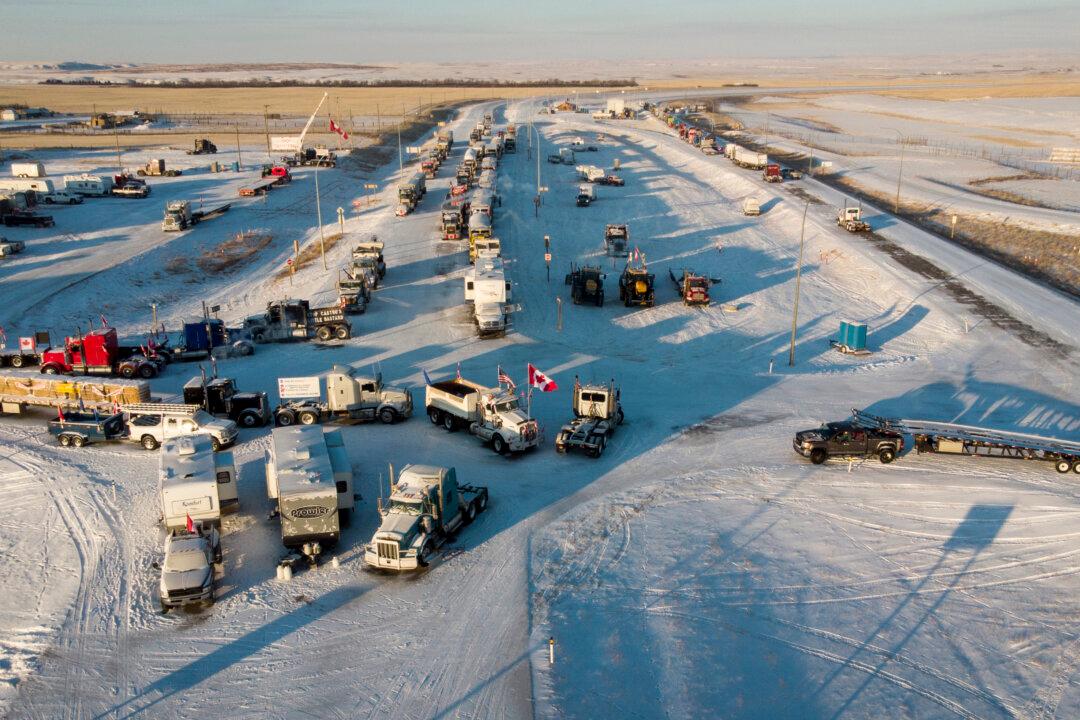Protesters blocking Alberta’s main U.S. border crossing at Coutts have changed their plan to abandon their protest that began on Jan. 29.
“There was a decision made that has since been reversed,” Marco Van Huigenbos, one of the organizers of the trucker convoy blockade, told CBC News on Feb. 3.
No reason was given as to why the organizers reversed their decision. RCMP said previously that they had heard the protesters intended to pull out of the area soon, CBC reported.





